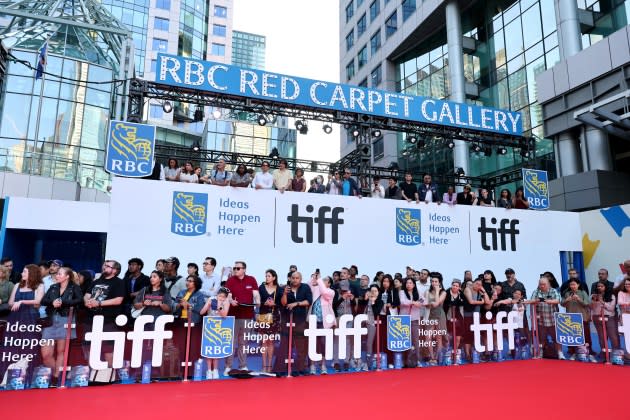The Toronto International Film Festival began with a spotlight on the ongoing Israel-Hamas conflict, as pro-Palestine protesters disrupted the opening night gala by chanting “Stop the genocide!” and calling for sponsor RBC to cease funding Israel’s attacks on Gaza. The protest occurred as Canadian PM Justin Trudeau was in attendance, and security escorted the demonstrators out of the theater. CNN reported that over 40,000 Palestinians have been killed since Hamas’ October 7 attack led to Israel’s retaliation. As the protest unfolded, U.S. Secretary of State Antony Blinken announced that the Biden administration, along with Qatar and Egypt, was working on a new cease-fire proposal for Israel and Hamas, with 90% of the deal already agreed upon.
The TIFF gala was followed by the screening of David Gordon Green’s Nutcrackers, starring Ben Stiller as a workaholic who cares for his orphaned nephews in rural Ohio. The film, which explores themes of family and redemption, served as a contrast to the heated political climate surrounding the festival’s opening night. Despite the disruption, the event continued as planned, showcasing a diverse range of films and filmmakers from around the world. The festival sought to maintain its focus on cinematic excellence and artistic expression, even as real-world conflicts intruded on the proceedings.
The divisive issue of the Israel-Hamas conflict underscored the broader tensions and activism present in society, as protesters sought to use the platform of a prominent film festival to draw attention to their cause. While the entertainment industry often serves as a space for escapism and entertainment, the protest at TIFF highlighted the ways in which political and social issues can intersect with cultural events. The festival organizers navigated the unexpected disruption with professionalism, ensuring that the event continued while acknowledging the concerns of the protesters and the wider community.
The presence of high-profile figures, such as Canadian Prime Minister Justin Trudeau, at the TIFF gala added another layer of significance to the protest and the broader conversations surrounding the Israel-Hamas conflict. As world leaders and celebrities gathered to celebrate the art of cinema, the reality of ongoing conflicts and human suffering loomed large. The protest served as a reminder of the power of art and culture to engage with pressing social issues and spark dialogue, even in unexpected settings. The clash between political activism and entertainment at the festival reflected the complex and sometimes fraught nature of public discourse in the modern world.
In the midst of the controversy and disruptions, the films and filmmakers showcased at the Toronto International Film Festival continued to captivate audiences and critics alike. The diverse selection of works demonstrated the power of storytelling to transcend borders and spark empathy across different cultures and experiences. The festival remained a platform for creative expression and dialogue, even as external tensions threatened to overshadow the celebration of cinema. By highlighting a wide range of voices and perspectives, TIFF continued to fulfill its mission of promoting artistic excellence and cultural exchange in a challenging and ever-changing world.
As the Toronto International Film Festival unfolded, the issue of the Israel-Hamas conflict revealed the complexities and tensions that can arise in the intersection of art, politics, and activism. The protest at the opening night gala served as a stark reminder of the urgent global issues that continue to impact communities around the world. Despite the disruptions, the festival persevered in its commitment to showcasing innovative and thought-provoking cinema, inviting audiences to engage with challenging and diverse narratives. Through the power of storytelling and dialogue, TIFF demonstrated the enduring relevance of film as a medium for reflecting on and responding to the complexities of our time.


